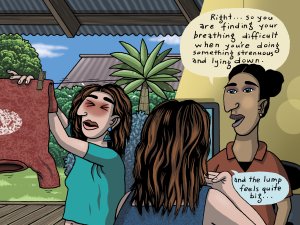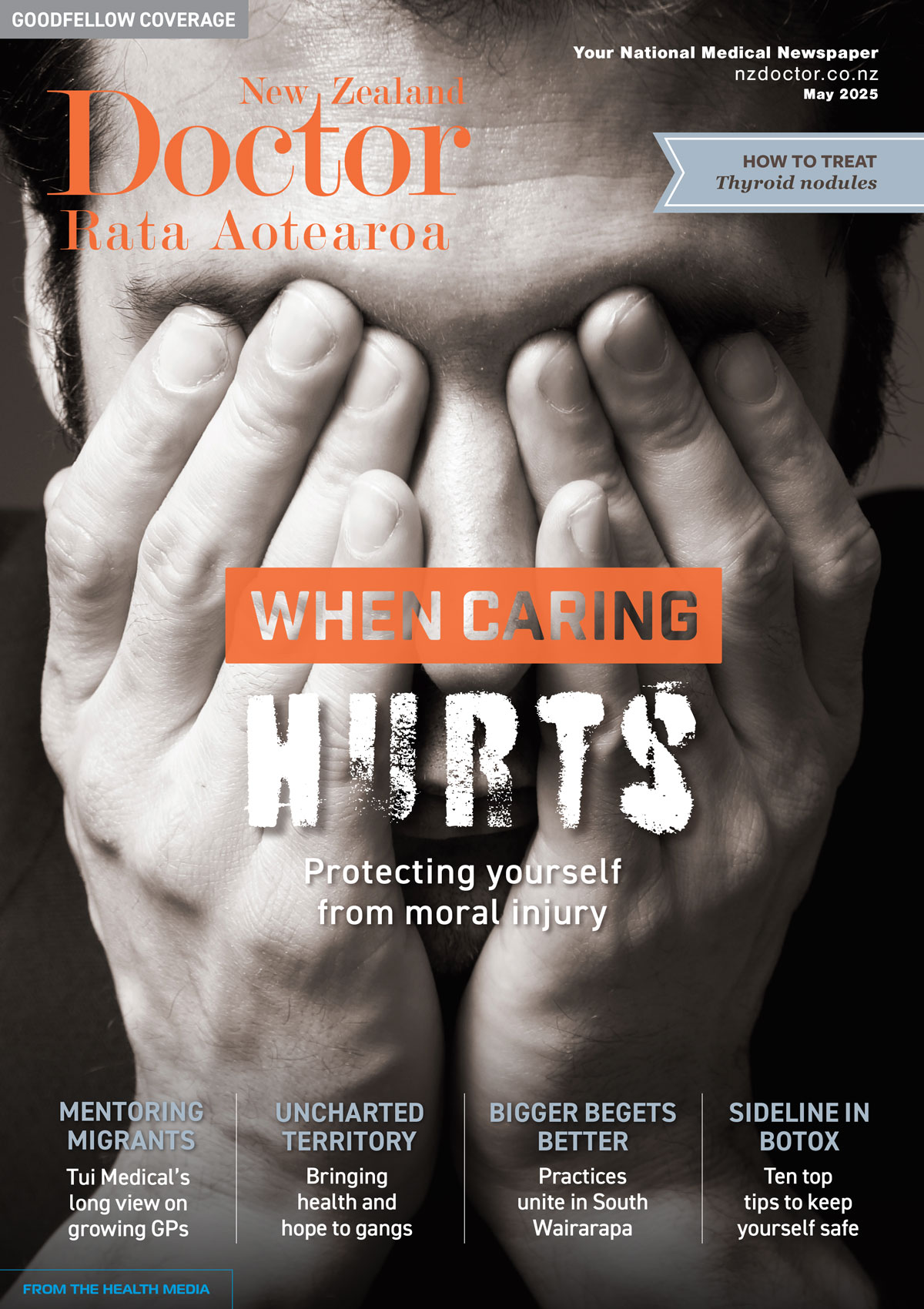Otolaryngologist, head and neck surgeon Francis T. Hall discusses the evaluation of thyroid nodules, which primarily aims to determine the likelihood of malignancy. He then reviews the treatment of thyroid nodules and thyroid cancer, including recent advances in management
Oranga Tamariki decisions need reversing before more harm is caused
Oranga Tamariki decisions need reversing before more harm is caused
The latest Oranga Tamariki revelation is simply unacceptable and risks further jeopardising already vulnerable children, warns the NZ Association of Counsellors (NZAC).
Recent funding and contract changes at Oranga Tamariki were put under the Auditor-General’s spotlight in a critical report.
The report found the restructuring of service provider contracts was not underpinned by sufficient evidence or a clear understanding of how changes would affect children and families.
NZAC President Sarah Maindonald says the findings reinforce concerns that a shift away from trusted, community-based support services could have lasting consequences for the wellbeing of tamariki and whānau.
“When decisions about funding and service delivery are made without meaningful engagement or evidence, the result ends up harming our most vulnerable,” Maindonald says.
“These decisions affect the stability of counselling services, the continuity of care for children, and the capacity of communities to respond early and effectively to distress.”
Earlier this year, it was revealed more than 1,000 at-risk children in Oranga Tamariki care are without an assigned social worker, a situation NZAC described as a “distress signal” for children’s wellbeing.
Maindonald says the cumulative effect of contract changes, reduced funding for early intervention, and an overstretched frontline risks embedding disadvantage.
“When contracts are restructured and relationships with established community providers are disrupted, it takes time, sometimes years, to rebuild trust and effectiveness. In the meantime, children go without support.”
NZAC is calling on the Government to take stock of the Auditor-General’s findings and work collaboratively with the social services and counselling sectors to strengthen the system, rather than fragment it.
“We urge the Government to revisit these changes and refocus investment on models that are evidence-based, whānau-centred, and built on trusted community partnerships,” Maindonald says.
“There is still time to restore confidence, protect continuity of care, and ensure that tamariki have the support they need.”




![New Zealand Doctor Rata Aotearoa editor Barbara Fountain, RNZCGP president elect and Tauranga-based specialist GP Luke Bradford, Ministry of Health clinical chief advisor rural health Helen MacGregor, and Health New Zealand Te Whatu Ora clinical director primary and community care Sarah Clarke [Image: NZD]](/sites/default/files/styles/thumbnail_cropped_100/public/2025-05/1.%20Barbara%20Fountain%2C%20Luke%20Bradford%2C%20Helen%20MacGregor%20and%20Sarah%20Clarke.jpg?itok=091NETXI)
![Ngāti Porou Oranga specialist GP Elina Pekansaari and Te Nikau Hospital specialist in general practice and rural hospital medicine David Short [Image: NZD]](/sites/default/files/styles/thumbnail_cropped_100/public/2025-05/2.%20Elina%20Pekansaari%20and%20David%20Short.jpg?itok=h5XfSBVM)
![Locum specialist GP Margriet Dijkstra and OmniHealth regional operations manager (southern) Patricia Morais-Ross [Image: NZD]](/sites/default/files/styles/thumbnail_cropped_100/public/2025-05/3.%20Margriet%20Dijkstra%20and%20Patricia%20Morais-Ross.jpg?itok=jkrtRfJC)
![Golden Bay dairy farmer and dairy industry health and safety doctoral student Deborah Rhodes, and Golden Bay Community Health specialist GP Rachael Cowie [Image: NZD]](/sites/default/files/styles/thumbnail_cropped_100/public/2025-05/4.%20Deborah%20Rhodes%20and%20Rachael%20Cowie.jpg?itok=oM0_GcJc)
![Hauora Taiwhenua clinical director rural health Jeremy Webber, Australian College of Rural and Remote Medicine president Rod Martin and Observa Care director of business operations Deborah Martin, the wife of Dr Martin [Image: NZD]](/sites/default/files/styles/thumbnail_cropped_100/public/2025-05/5.%20Jeremy%20Webber%2C%20Rod%20Martin%20and%20Deborah%20Martin%2C%20the%20wife%20of%20Dr%20Martin.jpg?itok=P_aGmX_H)
![Spark Health chief executive John Macaskill-Smith and client director Bryan Bunz [Image: NZD]](/sites/default/files/styles/thumbnail_cropped_100/public/2025-05/6.%20John%20Macaskill-Smith%20and%20Bryan%20Bunz.jpg?itok=5yJvVZ0I)
![Associate dean (rural) Kyle Eggleton, third-year medical student Roselle Winter, and second-year pharmacy student Alina Khanal, all from the University of Auckland [Image: NZD]](/sites/default/files/styles/thumbnail_cropped_100/public/2025-05/7.%20Kyle%20Eggleton%2C%20Roselle%20Winter%20and%20Alina%20Khanal.jpg?itok=RQLd3TEs)
![Health New Zealand Te Whatu Ora clinical editor and specialist in general practice and rural hospital medicine Anu Shinnamon, and Whakarongorau chief clinical officer Ruth Large [Image: NZD]](/sites/default/files/styles/thumbnail_cropped_100/public/2025-05/8.%20Anu%20Shinnamon%20and%20Ruth%20Large.jpg?itok=i5TMswY9)
![Te Kahu Hauora Practice specialist GP Jane Laver and Ngāti Kahungunu ki Tāmaki-nui-a-Rua chief operations manager Tania Chamberlain [Image: NZD]](/sites/default/files/styles/thumbnail_cropped_100/public/2025-05/9.%20Jane%20Laver%20and%20Tania%20Chamberlain.jpg?itok=jtMklaCZ)